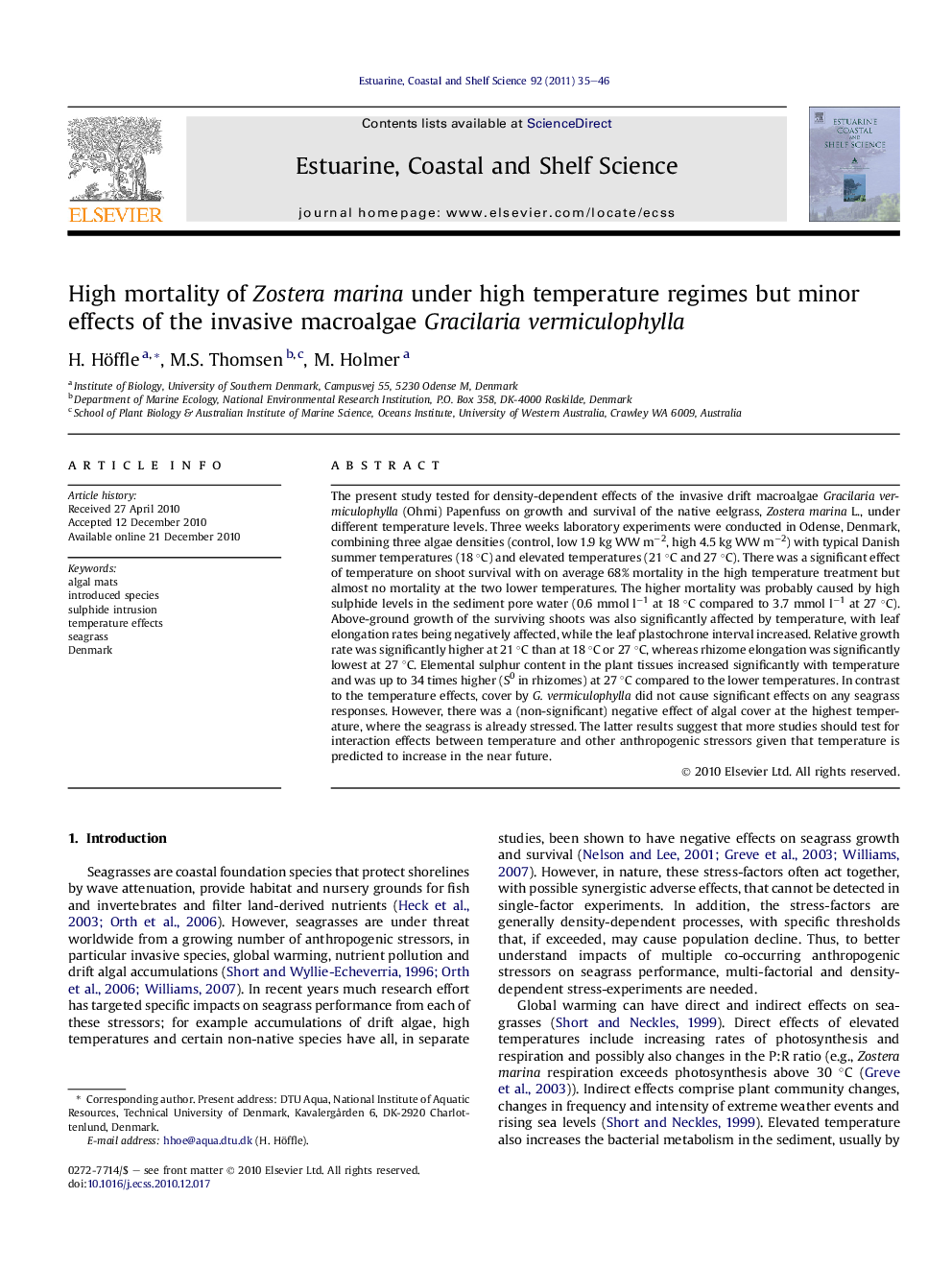| کد مقاله | کد نشریه | سال انتشار | مقاله انگلیسی | نسخه تمام متن |
|---|---|---|---|---|
| 4540584 | 1326677 | 2011 | 12 صفحه PDF | دانلود رایگان |

The present study tested for density-dependent effects of the invasive drift macroalgae Gracilaria vermiculophylla (Ohmi) Papenfuss on growth and survival of the native eelgrass, Zostera marina L., under different temperature levels. Three weeks laboratory experiments were conducted in Odense, Denmark, combining three algae densities (control, low 1.9 kg WW m−2, high 4.5 kg WW m−2) with typical Danish summer temperatures (18 °C) and elevated temperatures (21 °C and 27 °C). There was a significant effect of temperature on shoot survival with on average 68% mortality in the high temperature treatment but almost no mortality at the two lower temperatures. The higher mortality was probably caused by high sulphide levels in the sediment pore water (0.6 mmol l−1 at 18 °C compared to 3.7 mmol l−1 at 27 °C). Above-ground growth of the surviving shoots was also significantly affected by temperature, with leaf elongation rates being negatively affected, while the leaf plastochrone interval increased. Relative growth rate was significantly higher at 21 °C than at 18 °C or 27 °C, whereas rhizome elongation was significantly lowest at 27 °C. Elemental sulphur content in the plant tissues increased significantly with temperature and was up to 34 times higher (S0 in rhizomes) at 27 °C compared to the lower temperatures. In contrast to the temperature effects, cover by G. vermiculophylla did not cause significant effects on any seagrass responses. However, there was a (non-significant) negative effect of algal cover at the highest temperature, where the seagrass is already stressed. The latter results suggest that more studies should test for interaction effects between temperature and other anthropogenic stressors given that temperature is predicted to increase in the near future.
Research highlights
► Elevated temperature and drift algae as co-occurring stressors for Zostera marina.
► We tested for density-dependent effects of Gracilaria vermiculophylla.
► We found dramatic negative effects of elevated temperature on Z. marina.
► No major effects of G. vermiculophylla in the three weeks of the experiment.
► Negative trends suggest negative effects of G. vermiculophylla over longer time.
Journal: Estuarine, Coastal and Shelf Science - Volume 92, Issue 1, 20 March 2011, Pages 35–46